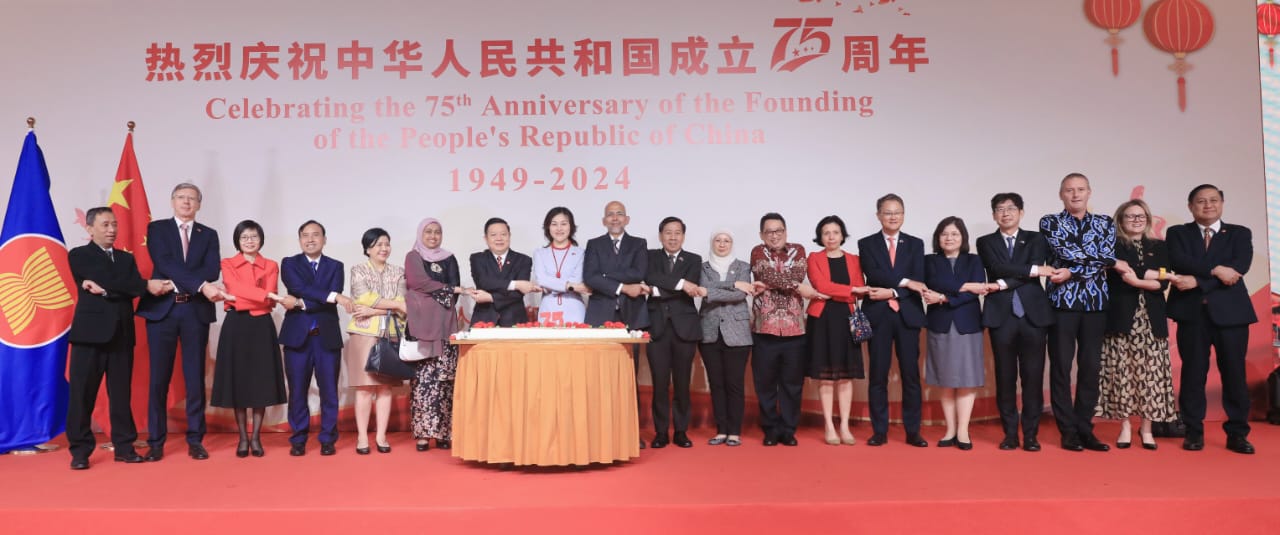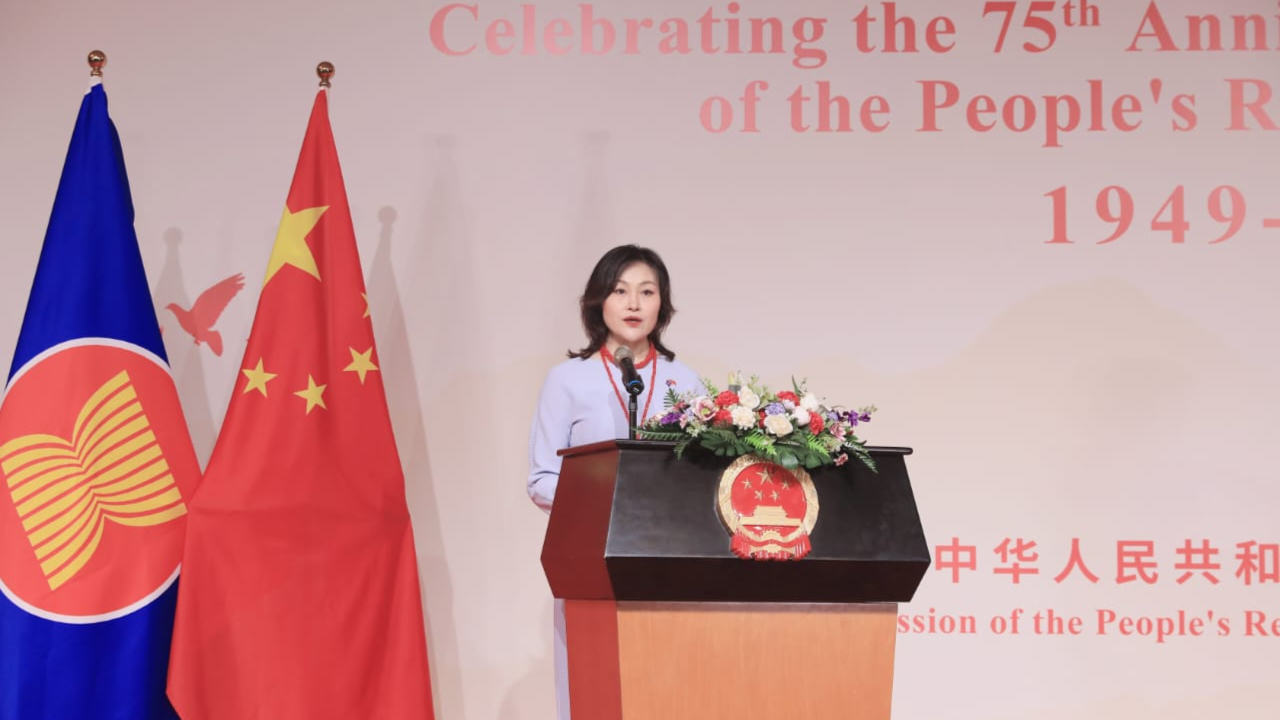
China and the members of the Association of Southeast Asian Nations have succeeded in deepening political mutual trust, senior Chinese and ASEAN diplomats said at an event marking the 75th anniversary of the founding of the People’s Republic of China.
The envoys, who had gathered in Indonesia’s capital Jakarta on Sept 12, noted that the two sides had pushed forward economic and trade ties, which have brought tangible results for the well-being of people in both regions.
The officials also said that the advancement of economic and cultural ties between China and the 10 ASEAN member nations has been deeply rooted in mutual communication across the centuries.
READ MORE: Build heart-to-heart bridges to bring China and ASEAN closer
“Beyond our extensive economic ties, the cultural ties, and the people exchange between ASEAN and China, the deep historical roots spanning centuries remain a cornerstone of our relations,” ASEAN Secretary-General Kao Kim Hourn said in his speech at the anniversary event in the Indonesian capital.
Kao noted that the ASEAN-China relationship had evolved significantly from its humble beginnings in 1991 to establishing a comprehensive economic partnership in 2021.
“The important evolution spans a wide range of sectors,” Kao said, noting geopolitical security, trade and investment, cultural exchange and collaboration, technology, education and health, sustainable development and environment, agriculture, and energy.
Kao also touched on the urgency of maintaining peace and stability in the South China Sea, saying that ASEAN and Beijing should ensure that the area remains a sea of peace, stability, friendship, and cooperation.
“In essence, our security is profoundly interlinked and interconnected and its growing interdependence underscores the importance of ASEAN and China security cooperation,” Kao said.
He added that ASEAN highly values China’s support for ASEAN centrality and unity, which together with interconnected security is a testament to the two sides’ shared dedication to fostering a peaceful, stable, and secure Asia Pacific.
Kao was joined by two other speakers: China’s Ambassador to ASEAN Hou Yanqi and the Permanent Representative of Malaysia to ASEAN Sarah Al Bakri Devadason. Malaysia is currently the country coordinator for China-ASEAN relations.
Event attendees included Indonesia’s Director-General for ASEAN Cooperation Sidharto R. Suryodipuro, permanent representatives of ASEAN member states, ambassadors from ASEAN dialog partners, think tank members, and businesspeople.
Hou stressed China’s path of socialism with Chinese characteristics suits China’s national conditions and has made China the world’s second-largest economy.
China’s sustained and rapid economic growth brought about an all-round improvement in people’s lives, he added.
“China has maintained sound relations and built partnerships with almost all countries in the world. The Five Principles of Peaceful Coexistence proposed by China 70 years ago has become widely recognized principles of international society and continues to play its role in the era,” Hou said.

Hou said that China’s vision of building a community with a shared future for mankind points the way for human society and will lead to peace, security, and common development.
“Over the past year, under the strategic guidance of our leaders, the ASEAN-China comprehensive strategic partnership has achieved outstanding progress,” Hou said, noting Chinese President Xi Jinping has had frequent contact with leaders of ASEAN members.
He said ASEAN has continued to be China’s largest trading partner and the two sides are working closely to implement the Regional Comprehensive Economic Partnership and upgrade the ASEAN-China Free Trade Agreement.
Hou specifically mentioned the China-Laos Railway and the Jakarta-Bandung High-Speed Railway as “popular stars” of Southeast Asia, showing the tangible results achieved by ASEAN-China connectivity cooperation.
“ASEAN remains a key partner for high-quality BRI (Belt and Road Initiative) cooperation,” Hou said.
Devadason from Malaysia said her country appreciates China’s unwavering support for ASEAN centrality and ASEAN community-building efforts.
“As the current country coordinator for ASEAN-China relations, Malaysia looks toward working closely with other ASEAN member states and China to further advance the ASEAN-China Comprehensive strategic partnership,” Devadason said.
READ MORE: China, ASEAN to further enhance cooperation, exchanges
Noting this year is the ASEAN-China year of people-to-people exchanges, she said they play “an irreplaceable role in enhancing mutual understanding, friendship, and trust, consolidating social foundation and public support, promoting economic and social development, and maintaining regional peace and stability”.
In addition to China retaining its position as ASEAN’s largest trading partner since 2009, Devadason lauded the sociocultural pillars established as foundations for cooperation in other fields.
Devadason noted the progress made by both sides on public health, science and technology, education, culture, environment, media, youth, social development, poverty reduction, and disaster management.
The writer is a freelance journalist for China Daily.


